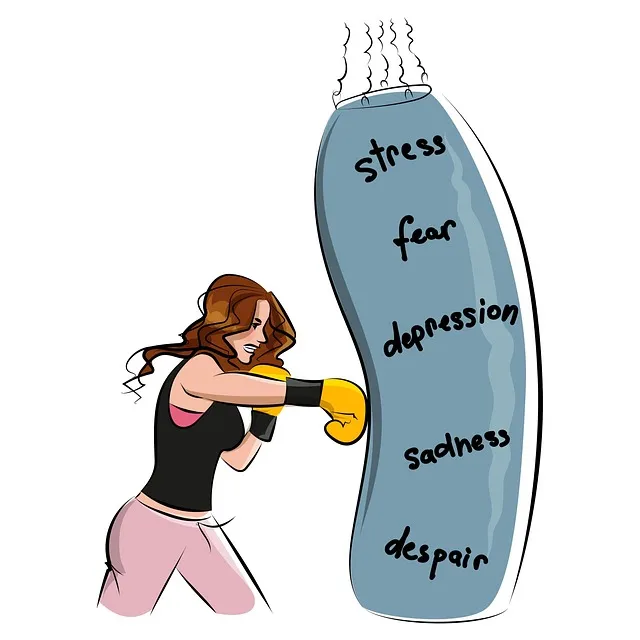Wheat Ridge Kaiser Permanente behavioral health services offer comprehensive emotion regulation programs, focusing on awareness, mindfulness, trauma support, and self-esteem building. Their specialized approaches, tailored for diverse needs, include evidence-based techniques to manage stress and enhance emotional resilience. By teaching emotion identification, labeling, and coping strategies, these services empower individuals with tools for mental well-being, aligning with community-level Mental Health Policy initiatives. This holistic model combines resilience, mindfulness, conflict resolution, and social skills training for long-term emotional balance and reduced mental illness stigma.
Emotion regulation techniques are essential tools for unlocking emotional well-being. This comprehensive guide explores various strategies taught by Wheat Ridge Kaiser Permanente Behavioral Health Services, a leading provider in mental health care. From identifying and labeling emotions to practical tools for managing strong feelings, we delve into the foundational steps and long-term practices that foster resilience and mindfulness. Discover how these techniques can enhance your daily life and overall emotional balance.
- Understanding Emotion Regulation: Unlocking Emotional Well-being
- The Role of Wheat Ridge Kaiser Permanente Behavioral Health Services in Teaching Techniques
- Identifying and Labeling Emotions: A Foundation for Regulation
- Strategies for Managing Strong Emotions: Practical Tools for Daily Life
- Cultivating Resilience and Mindfulness: Long-term Emotional Balance
Understanding Emotion Regulation: Unlocking Emotional Well-being

Emotion regulation is a vital skill that enables individuals to navigate life’s challenges with resilience and adaptability. It involves understanding, managing, and responding to one’s emotions in healthy ways, fostering emotional well-being. At Wheat Ridge Kaiser Permanente behavioral health services, experts emphasize that this process begins with awareness—recognizing and acknowledging one’s feelings without judgment. By developing this mindfulness, individuals can gain valuable insights into their emotional triggers and patterns, setting the foundation for effective regulation strategies.
Trauma Support Services play a crucial role in teaching individuals to manage intense emotions resulting from past traumas, offering tools to process and resolve these experiences. Self-esteem improvement is another key aspect, as positive self-perception empowers people to confront and redirect negative emotions constructively. Moreover, integrating emotion regulation into one’s routine can lead to significant improvements in overall mental health, complementing the efforts of Mental Health Policy Analysis and Advocacy initiatives that promote accessible and effective care for emotional well-being on a community level.
The Role of Wheat Ridge Kaiser Permanente Behavioral Health Services in Teaching Techniques

Wheat Ridge Kaiser Permanente Behavioral Health Services plays a pivotal role in teaching effective emotion regulation techniques to individuals seeking to enhance their mental well-being. Their specialized programs cater to diverse populations, offering tailored support for stress management and emotional resilience. Through innovative approaches, the services aim to empower people with the skills necessary to navigate life’s challenges more effectively.
By integrating evidence-based practices into their therapeutic frameworks, Wheat Ridge Kaiser Permanente Behavioral Health Services ensures that clients gain practical tools for managing emotions and promoting mental health awareness. This commitment aligns perfectly with the broader Mental Health Policy Analysis and Advocacy efforts, highlighting the importance of accessible and comprehensive care in fostering a healthier society. Through these initiatives, they contribute significantly to the community’s overall well-being by equipping individuals with the means to manage stress and maintain emotional balance.
Identifying and Labeling Emotions: A Foundation for Regulation

Identifying and labeling emotions is a fundamental step in emotion regulation techniques teaching. It serves as the cornerstone for individuals to gain a deeper understanding of their internal experiences, according to Wheat Ridge Kaiser Permanente behavioral health services. By naming what they feel, people begin to unravel the complexities of their emotions, enabling them to recognize patterns and triggers associated with specific feelings. This process fosters self-awareness, a crucial aspect in managing and regulating emotions effectively.
Furthermore, this skill is a key component in Risk Management Planning for Mental Health Professionals, as it promotes Emotional Well-being Promotion Techniques. It encourages clients to develop coping strategies tailored to their unique emotional needs, enhancing their ability to navigate challenging situations. Self-awareness exercises, integral to this process, empower individuals to make informed decisions regarding their emotional responses, thereby leading to improved overall well-being and mental resilience.
Strategies for Managing Strong Emotions: Practical Tools for Daily Life

Managing strong emotions is a vital skill for maintaining mental well-being and fostering healthy relationships. Wheat Ridge Kaiser Permanente behavioral health services offer practical tools to help individuals navigate emotional challenges effectively. One such strategy involves identifying and understanding triggers, allowing people to anticipate and prepare for potential emotional outbursts. By recognizing patterns in situations or interactions that lead to heightened emotions, one can implement calming techniques such as deep breathing exercises or mindfulness practices to reduce the intensity of the response.
Additionally, learning conflict resolution techniques is an invaluable asset for managing strong emotions in daily life. These skills enable individuals to communicate their feelings assertively while considering others’ perspectives, thereby promoting healthy interactions and reducing unnecessary stress. Incorporating strategies like active listening, empathy, and non-violent communication can significantly enhance mood management and anxiety relief, ensuring a more balanced and peaceful mindset.
Cultivating Resilience and Mindfulness: Long-term Emotional Balance

At Wheat Ridge Kaiser Permanente behavioral health services, a holistic approach to emotion regulation focuses on cultivating both resilience and mindfulness for long-term emotional balance. Resilience, defined as the ability to adapt and bounce back from adversity, is nurtured through various techniques that empower individuals to face challenges head-on. This involves building inner strength, developing coping strategies tailored to individual needs, and fostering a growth mindset that views setbacks as opportunities for learning and personal growth.
Mindfulness, on the other hand, teaches individuals to stay present, observe their thoughts and emotions without judgment, and develop a deeper understanding of their triggers. By integrating mindfulness practices into daily routines, people can enhance self-awareness, reduce reactive responses to stress, and cultivate a greater sense of calm and emotional regulation. This not only complements the process of inner strength development but also contributes to meaningful Social Skills Training and Mental Illness Stigma Reduction Efforts, fostering a supportive environment where individuals feel empowered to manage their emotional well-being effectively.
Emotion regulation techniques, when taught effectively, can significantly enhance emotional well-being. As demonstrated by Wheat Ridge Kaiser Permanente behavioral health services, these strategies not only provide immediate tools for managing strong emotions but also foster long-term resilience and mindfulness. By identifying and labeling emotions as a foundation, individuals can navigate their feelings with greater ease and balance in daily life. This comprehensive approach, highlighted throughout this article, offers a roadmap to unlocking emotional stability and overall mental health.






